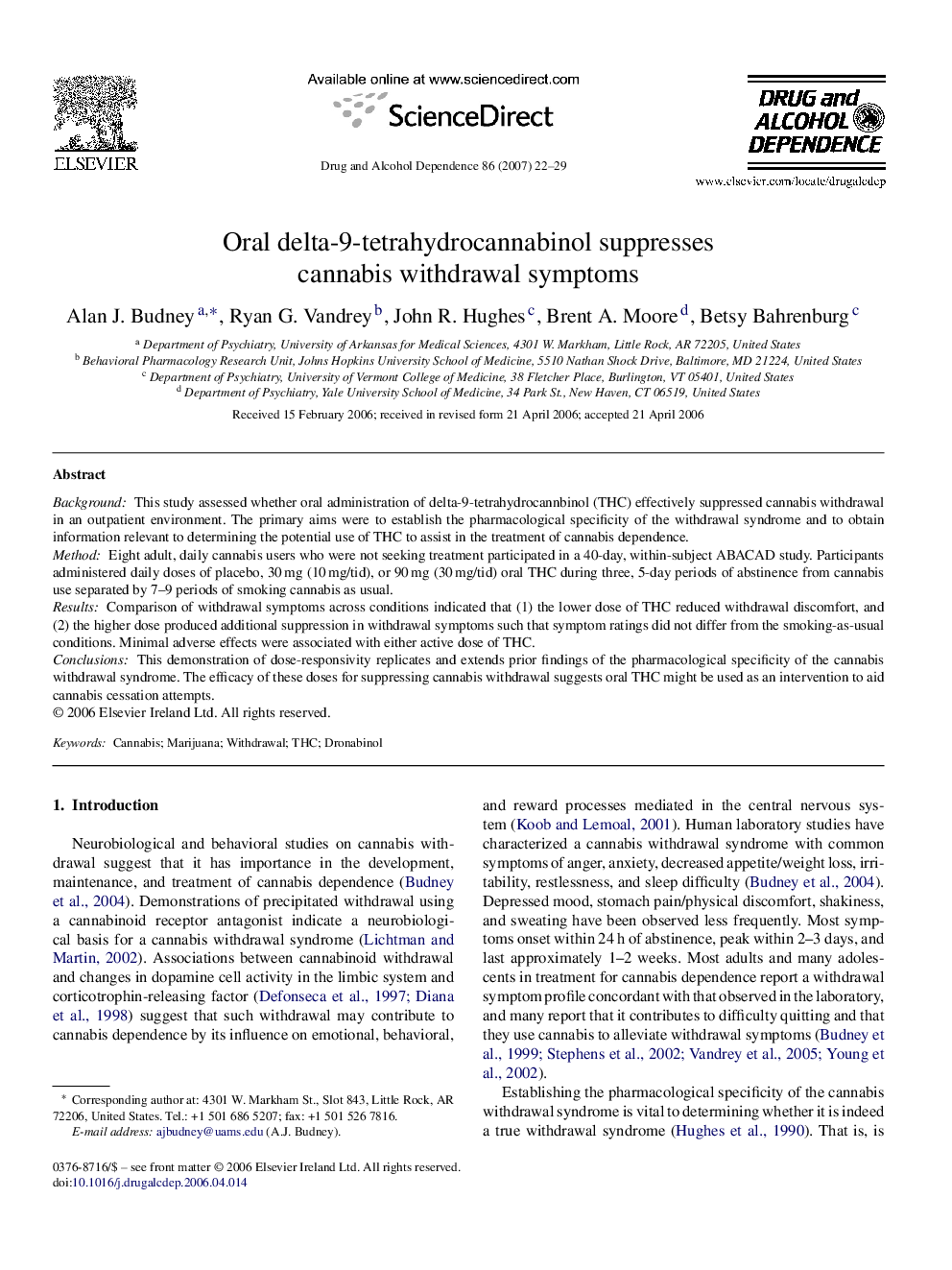| Article ID | Journal | Published Year | Pages | File Type |
|---|---|---|---|---|
| 1071833 | Drug and Alcohol Dependence | 2007 | 8 Pages |
BackgroundThis study assessed whether oral administration of delta-9-tetrahydrocannbinol (THC) effectively suppressed cannabis withdrawal in an outpatient environment. The primary aims were to establish the pharmacological specificity of the withdrawal syndrome and to obtain information relevant to determining the potential use of THC to assist in the treatment of cannabis dependence.MethodEight adult, daily cannabis users who were not seeking treatment participated in a 40-day, within-subject ABACAD study. Participants administered daily doses of placebo, 30 mg (10 mg/tid), or 90 mg (30 mg/tid) oral THC during three, 5-day periods of abstinence from cannabis use separated by 7–9 periods of smoking cannabis as usual.ResultsComparison of withdrawal symptoms across conditions indicated that (1) the lower dose of THC reduced withdrawal discomfort, and (2) the higher dose produced additional suppression in withdrawal symptoms such that symptom ratings did not differ from the smoking-as-usual conditions. Minimal adverse effects were associated with either active dose of THC.ConclusionsThis demonstration of dose-responsivity replicates and extends prior findings of the pharmacological specificity of the cannabis withdrawal syndrome. The efficacy of these doses for suppressing cannabis withdrawal suggests oral THC might be used as an intervention to aid cannabis cessation attempts.
